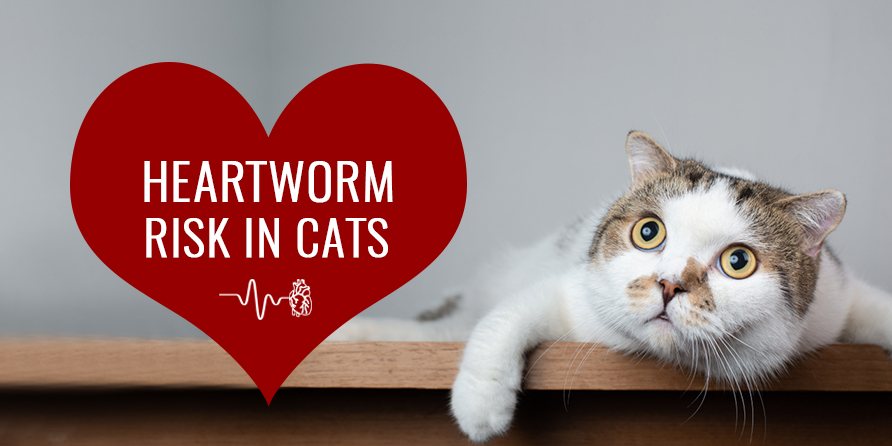It’s true that cats have nine lives but you can’t guarantee all those are going to be spent with you. Heartworm, one of the deadliest diseases among dogs, is not just rare among cats but cats actually are a whole lot less susceptible to it. And yet, cats are still at risk if they get Heartworm because there is no treatment that can kill adult Heartworms in cats. Therefore, prevention is important to keep them healthy and alive.
Heartworm Symptoms in Cats –Its Transmission
It begins with an infected mosquito’s bite. The Heartworm larvae enter in to the cat’s body, grow, mature and finally settle near the heart. It takes around eight months for them to produce more microfilariae and for the cat to start showing symptoms, basically vomiting and coughing. And then the terrifying process of x-rays, ultra-sounds, blood tests and urinalysis, which is a cost you pay with your heart and your pocket.
The Risk – Myth or Reality
Any disease can be a potential risk to your pet’s health. And Heartworm is no different, even if they are less prevalent in felines than in canines. If you do not use the right preventives, your cat, indoor or outdoor, is definitely at risk. ‘An ounce of prevention is worth a pound of cure’.
Do Cats need Heartworm Prevention
There is no sure-shot method for diagnosing Heartworm in cats nor is there yet a viable medicine to avert the infestation or treat it. Your cat may seem fine with the treatment you think is working well and then some day she may suddenly die. It is said to take about two years to eliminate the infection but no guarantee that she would live those two years without getting critical.
Actually, heart worm is not such an issue with cats as is the intense fight put up by them against it that weakens the immune system and in turn leads to HARD (Heartworm Associated Respiratory Disease) and ultimately to their death.
However, if unfortunately your cat is diagnosed with Heartworm that does not necessarily mean she is doomed to die. With proper supervised medical care and treatment, she can still have a long and happy life. And, the good news is that there are reliable Heartworm preventatives now available to make prevention in cats safe and easy.
Heartworm Prevention for Cats
According to vets, cats need to be given monthly Heartworm preventive treatment. And since this disease is spread through mosquito bite, cat owners should take all the necessary measures against their kitties coming in contact of these insects. Bar the windows and windows with effective screens to prevent entry of mosquitoes and avoid accumulation of water in or around your house to prevent mosquito breeding.
Get an appointment with a good veterinarian if your cat is having difficulty breathing, convulsions or sudden loss in weight because these are sure signs of Heartworm disease. That doesn’t mean you wait for the symptoms top show before contacting the vet. You could always just take an appointment to discuss the Preventive Measure and get an effective prevention protocol before it’s too late. Treating this deadly disease is a big deal, but preventing it isn’t.







